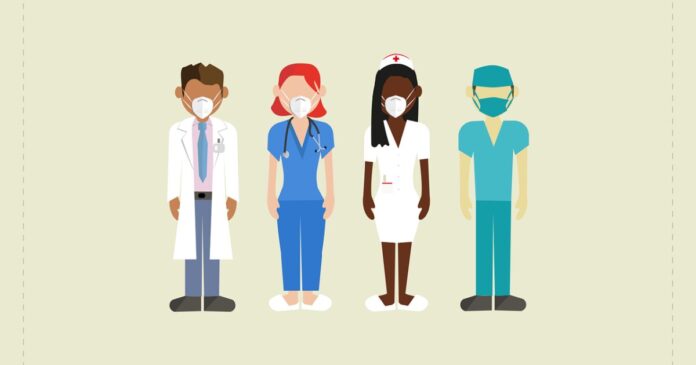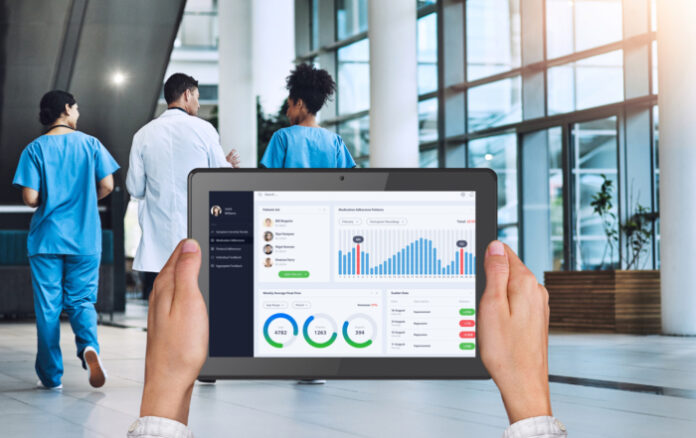Medical practices today face many challenges. From ensuring high-quality patient care to complying with ever-changing healthcare regulations, the demands are extensive. One critical aspect of a successful practice is effective management, and a significant component of this is establishing strong collaborative relationships with healthcare professionals.
The Importance of Collaboration in Healthcare

Healthcare is a team effort. In this dynamic environment, collaboration is not just beneficial; it’s essential. By working together, healthcare providers can offer comprehensive care that addresses all aspects of a patient’s well-being.
Multidisciplinary Teams
A multidisciplinary team approach integrates the expertise of various healthcare professionals, including:
- Physicians
- Registered Nurses
- Nurse Practitioners
- Physician Assistants
These teams work in unison to tackle complex medical issues, ensuring that each patient receives the best possible care.
Finding the Right Match for Your Practice

In the quest to provide top-tier healthcare services, one may need to find a medical director who aligns with the specific needs of their practice. The right medical director can bring a wealth of knowledge and experience, significantly enhancing the quality of care provided.
Specific Experience and Specialty
Each medical practice has unique needs based on its patient demographic and medical specialty. When looking for a collaborative physician, specific experience and specialty are paramount to ensure that the physician can effectively address the particular challenges of your practice.
Prescriptive Authority
Certain healthcare providers may require a collaborating physician to have prescriptive authority. This is especially important in practices where medication management is a significant component of patient care.
Streamlining the Search Process
Finding the right collaborative partner can be a daunting task. However, the process can be significantly simplified with specialized services designed to match medical practices with licensed physicians.
Fast and Efficient Matching
These services can identify potential matches quickly, often providing options within one to two days. This efficiency ensures that your practice can continue to operate without unnecessary interruptions.
Tailored to Your Needs
By working with trained account coordinators who ask pertinent questions, your practice will be connected with a physician whose qualifications are well-suited for your specific requirements.
Pricing and Personalization
In any business, cost is a consideration. In healthcare, where resources must be judiciously managed, understanding the factors influencing collaboration pricing is crucial.
Factors Affecting Collaboration Pricing:
- Type of medical practice
- Geographic location
- Physician specialty
- Types of medications prescribed
Account coordinators will use this information to provide a personalized quote, ensuring you receive value for money spent on collaborative services.
The Benefits of a Collaborative Practice Agreement

Entering into a collaborative practice agreement comes with numerous benefits that can lead to the long-term growth and success of your medical practice.
Clinical Assistance
A collaborative physician can provide essential clinical assistance, supporting the healthcare team in delivering patient care.
Emergency Response
Having a physician readily available in case of emergencies can be invaluable, allowing for immediate and appropriate responses to unforeseen medical situations.
Compliance with State Laws
Collaborative practice agreements also ensure that your practice remains compliant with state healthcare regulations, which can often be complex and subject to change.
Long-Term Growth and Success
Ultimately, the goal of collaboration is to foster an environment where your medical practice can thrive. This includes growing your patient base, improving patient care outcomes, and developing a robust reputation in the healthcare community.
The Client Loyalty Discount
To reward long-term partnerships, many services offer a Client Loyalty Discount after the first year of collaboration. This encourages continuity and stability within your practice’s management structure.
Harnessing Technology for Enhanced Collaboration in Medical Practice Management

In the rapidly evolving landscape of healthcare, leveraging technology is paramount for optimizing medical practice management. The integration of advanced technological solutions not only streamlines operations but also significantly enhances the collaborative efforts of healthcare teams.
Digital Communication Platforms
Central to fostering effective collaboration is robust communication. Digital communication platforms offer an array of tools that facilitate real-time interaction, information sharing, and decision-making among healthcare professionals. These platforms can include:
- Secure messaging systems ensuring privacy and compliance with healthcare regulations.
- Video conferencing tools that allow for virtual meetings and consultations, crucial in the era of telemedicine.
- Shared digital workspaces where teams can collaboratively work on patient files, treatment plans, and other critical documents.
Electronic Health Records (EHRs)

EHRs are a cornerstone of modern medical practice, offering a comprehensive, accessible view of patient histories, treatment plans, and medical data. When effectively integrated into a collaborative healthcare model, EHRs can:
- Provide real-time access to patient data for all team members, ensuring informed decision-making.
- Facilitate the monitoring of patient progress and the efficacy of treatment plans.
- Enable the seamless exchange of information among different healthcare providers, including specialists and primary care physicians.
Data Analytics and Decision Support Systems
Harnessing the power of data analytics can significantly enhance the collaborative efforts of healthcare teams. Decision support systems can:
- Analyze vast amounts of medical data to provide insights, helping healthcare professionals make informed clinical decisions.
- Predict patient risks and suggest preventive measures, thereby facilitating proactive rather than reactive healthcare.
- Offer evidence-based guidelines and treatment protocols, ensuring that the collaborative team is aligned with the latest medical standards and practices.
Remote Patient Monitoring (RPM) Tools

RPM tools represent a leap forward in patient care and collaborative healthcare management. These technologies allow healthcare teams to:
- Continuously monitor patient health metrics outside of traditional clinical settings, providing a more comprehensive view of patient health.
- Receive alerts and updates on patient conditions, enabling timely interventions when necessary.
- Engage patients in their healthcare journey, fostering a collaborative relationship between patients and healthcare providers.
Enhancing Patient Engagement and Education through Collaborative Platforms
In an era where patient involvement is increasingly recognized as a cornerstone of effective healthcare, the role of technology in fostering patient engagement and education is indispensable. Collaborative healthcare partnerships can harness various platforms and tools to empower patients, making them active participants in their healthcare journey.
Interactive Patient Portals
Interactive patient portals stand at the forefront of patient-centered technology, offering a secure and personal gateway to healthcare services. These portals enable patients to:
- Access their personal health records, lab results, and medical history, promoting transparency and better understanding of their health status.
- Schedule appointments, request prescription refills, and communicate directly with their healthcare providers, making healthcare more accessible and convenient.
- Receive personalized health reminders and educational materials, fostering adherence to treatment plans and preventive healthcare measures.
Mobile Health Apps and Wearables
The proliferation of mobile health apps and wearable technology marks a significant advancement in patient engagement. These tools offer:
- Real-time health monitoring, providing patients with immediate feedback on vital signs, physical activity, and other health metrics.
- Customized health and wellness programs, encouraging healthy lifestyle choices and self-management of chronic conditions.
- Direct communication channels with healthcare providers, allowing for timely advice and intervention, thereby reducing the need for emergency care and hospitalization.
Virtual Reality and Gamification in Health Education

Virtual reality (VR) and gamification are transforming health education by providing immersive and interactive learning experiences. These innovative approaches can:
- Simulate real-life scenarios for patient education, helping individuals understand their conditions and the importance of treatment adherence.
- Offer engaging and motivational platforms for physical rehabilitation and mental health therapies, improving patient participation and outcomes.
- Provide a dynamic and interactive environment for healthcare professionals to engage in continued education and training, ensuring that the care delivered is based on the most current practices and knowledge.
Final Thoughts
In conclusion, effective management in medical practice hinges on strong collaborative relationships. By partnering with the right healthcare professionals, you can enhance patient care, streamline operations, and ensure compliance with regulations. While finding the perfect match may seem challenging, specialized services are available to facilitate this process, providing tailored solutions that fit your unique needs. With these partnerships in place, your medical practice is poised for enduring success and growth.









